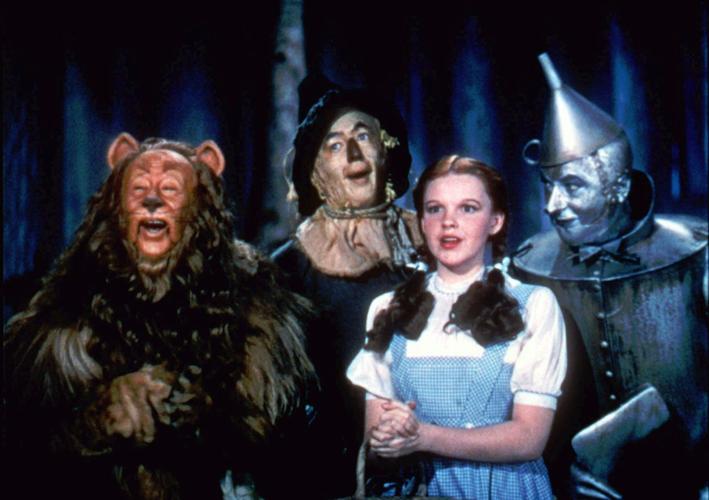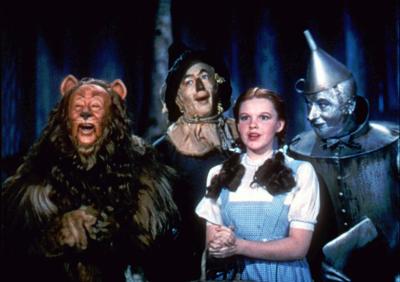Early 20th-century novelist Thomas Wolfe wrote, “.” Dorothy Gale, in "The Wizard of Oz," though, said, “There’s no place like home.” Wolfe was wrong and Dorothy was right. Forty years after starting as a sports writer for The Times-Picayune, I have now returned full-time to the Times-Picayune | Advocate editorial board, precisely because Louisiana is worth a homecoming.
Louisiana is the most interesting, culturally distinctive state in the union. Louisiana is the state that hits most above its weight in national politics. Louisiana in 2026 probably will have the most-watched U.S. Senate primary in the nation. And Louisiana’s biggest, most famous city faces an epochal (and perhaps epic) election for mayor and other city offices this year, with a desperate need for competence, reform, vision, integrity and a unifying civic spirit.
Louisianans need no lengthy tutorials here about the fascinations of the state’s tripartite culture, with traditional Southern culture in the northern half of the state, Cajun culture in the south and New Orleans’ wondrous mélange. Novelist Walker Percy told me in an interview that the city has “an odd admixture of Deep-South-ness and foreignness,” but that’s only part of the cultural jambalaya, which also includes an urban-ness, a cosmopolitan-ness, and a sui generis whimsicality.
What I’ve come to appreciate almost as much as all that, and what always impresses my Alabaman wife, is the sheer friendliness of most Louisianans. Yes, Midwesterners often offer a sincere but bland kindness (hence the expression “Minnesota nice”), but nothing can match the innate and almost rococo warmth and welcome of a Louisiana native greeting a visitor.

Quin Hillyer
Louisianans also are famously resilient, and underneath the apparently careless bonhomie is an underrated work ethic. (A hat tip here goes out to various service experts — Krystal and Michael of Cox Cable and Marcelle of ADT alarms — who in their own way recently reminded me, by example, of that attribute.) At the risk of over-generalizing, Louisiana at its best boasts a common culture of resilience and “can-do” cheerfulness that is unique and admirable.
The “people skills” inculcated in Louisiana culture might explain why Louisiana so often packs such a punch in national politics. Previous decades have seen Hale and Lindy Boggs, Russell Long, Bob Livingston, Billy Tauzin and a host of others wield great power in the halls of Congress; and now our Bayou State, despite comprising only 1.3% of the nation’s population, boasts the unprecedented power concentration in the House of both the speaker, Mike Johnson, R-Benton, and the majority leader, Steve Scalise, R-Jefferson. What Johnson and Scalise hear from their constituents, therefore, should have an outsized effect on national policy. The speaker and majority leader must exercise this responsibility with wisdom.
On the Senate side, meanwhile, national attention will focus on Louisiana’s Republican primary among incumbent Bill Cassidy, state treasurer John Fleming and others. Louisiana Republicans will need to decide if they want to throw out the useful seniority of someone, Cassidy, with a demonstrable record of solid conservativism, merely because he hasn’t always bowed and scraped to President Donald Trump. Are Louisiana Republicans a cult of personality or are they actually interested in having someone use independent judgment to achieve conservative results?
For a writer on politics and policy, the Johnson-Scalise-Cassidy permutations present a delectable feast.
The most immediately pressing circumstance, though, is local. In the past four or five years, New Orleans has seen reverses from much of its post-Katrina progress. Yes, the huge spike in crime has somewhat abated, but New Orleans still has the in the country (and Baton Rouge is even worse, ranking sixth). The Bureau of Governmental Research that New Orleans is still woefully underfunding its streets-maintenance program, and that the Sewerage and Water Board likewise faces “substantial infrastructure needs” that current revenue sources “cannot meet.” The Data Center for Southeast Louisiana the overall New Orleans population actually has dropped 5% since 2020, and in 2023 a full 32% of New Orleans children were in households below the official poverty line.
And so on.
The race for mayor in New Orleans this year therefore will be more important even than normal, with equal chances for disaster or renewal. City Council and other municipal races likewise are crucial. The Crescent City can’t afford to get things wrong this time. And while the rest of the state sometimes resents New Orleans’s prominence, the state itself can’t be healthy if its biggest city is in dire straits.
All of this — the bad, the ugly, and the truly wonderful in both city and state — make a homecoming, and a home-boosting, eminently worthwhile.



